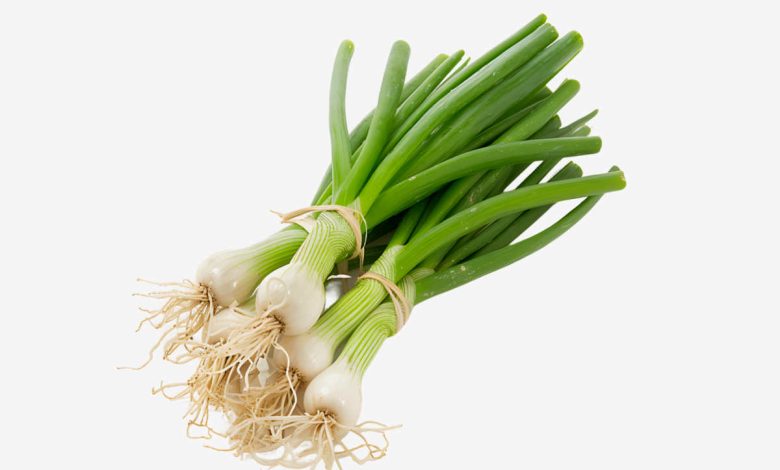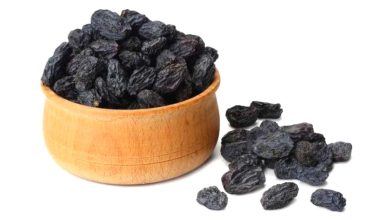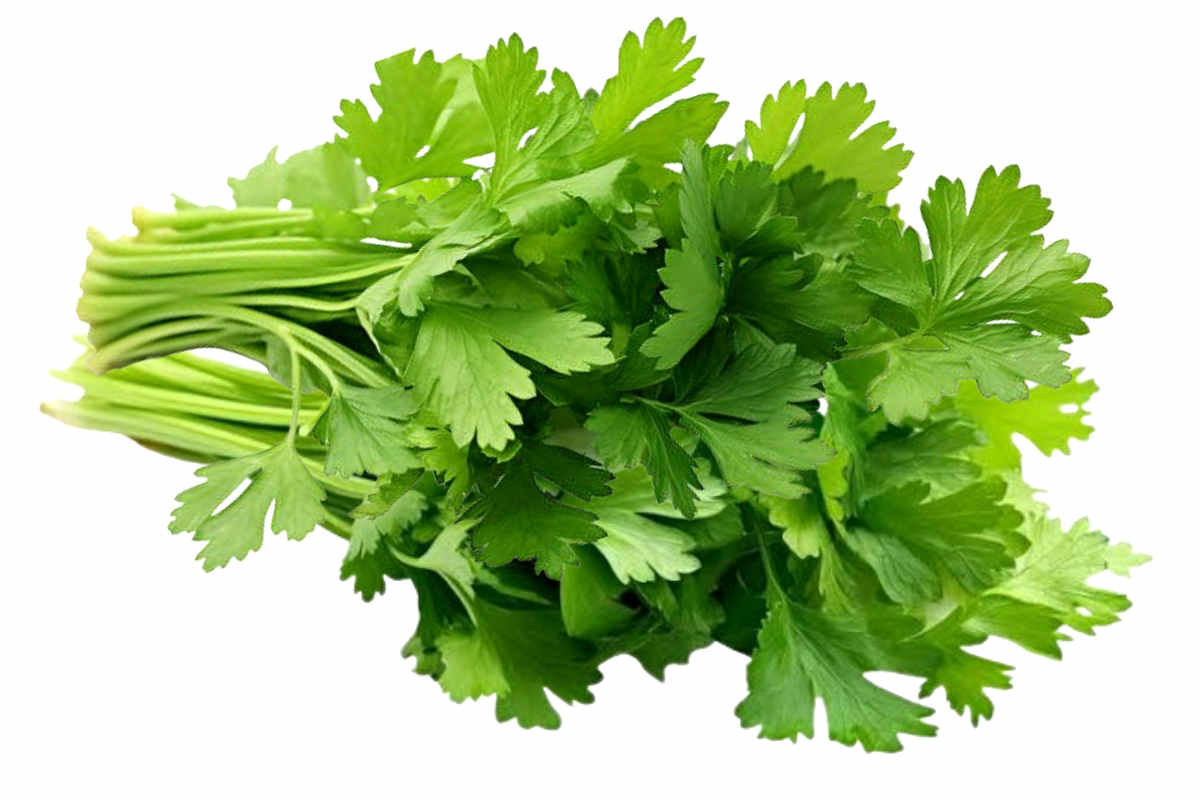The Health Benefits of Green Onions: An In-Depth Exploration

(Health benefits of green onions)
Green onions, also known as scallions or spring onions, have been a staple in various culinary traditions for centuries. Valued not only for their mild, slightly pungent flavor, but also for their vibrant green color and crisp texture, green onions are more than just a garnish or flavor enhancer. They are a powerhouse of nutrition, providing a range of health benefits that support overall well-being.
In this comprehensive article, we will explore the impressive health benefits of green onions, examining their nutritional profile, potential roles in disease prevention, and their place in a balanced diet.
Nutritional Profile of Green Onions
Green onions, like many other vegetables in the Allium family (which also includes garlic, onions, leeks, and shallots), are rich in essential nutrients that contribute to their many health benefits. Here’s a closer look at their nutritional content per 100 grams:
- Calories: 32
- Carbohydrates: 7.3 g
- Protein: 1.8 g
- Fat: 0.2 g
- Dietary Fiber: 2.6 g
- Vitamin A: 24% of the Recommended
- Daily Value (RDV)
- Vitamin C: 18% of the RDV
- Vitamin K: 172% of the RDV
- Folate: 16% of the RDV
- Calcium: 5% of the RDV
- Potassium: 7% of the RDV
- Magnesium: 4% of the RDV
This impressive nutrient profile shows that green onions are a low-calorie vegetable packed with important vitamins and minerals. Among their standout nutrients are vitamin K, vitamin A, and vitamin C, all of which play significant roles in supporting the body’s overall health.
1. High in Antioxidants
Green onions are rich in antioxidants, particularly flavonoids such as quercetin and kaempferol. These compounds help neutralize harmful free radicals in the body, which can contribute to oxidative stress—a factor in chronic diseases such as heart disease, cancer, and neurodegenerative conditions like Alzheimer’s disease.
Flavonoids: These antioxidants are known for their anti-inflammatory properties, and studies suggest they may help reduce the risk of certain cancers, including colon and lung cancer. Quercetin, in particular, has been shown to have potential cancer-preventing properties due to its ability to inhibit the growth of cancer cells and promote apoptosis (cell death) in these abnormal cells.
Selenium: Though present in small amounts in green onions, selenium is another powerful antioxidant that can help protect the body from oxidative stress, supporting immune function and reducing the risk of chronic diseases.
2.Supports Heart Health
Green onions have multiple components that can benefit cardiovascular health. One of the most important is their sulfur-containing compounds, which are known to support heart health in various ways.
Sulfur Compounds: These compounds have been shown to help reduce cholesterol levels, lower blood pressure, and prevent blood clots. By promoting better circulation and reducing the risk of arterial plaque formation, they help lower the risk of heart attacks and strokes.
Vitamin K: As a highly concentrated source of vitamin K, green onions support heart health by helping regulate blood clotting. Vitamin K also plays a role in reducing the calcification of arteries, which is a contributing factor to heart disease.
Potassium: Potassium is another essential nutrient found in green onions that supports heart health. This mineral helps maintain proper fluid balance, reduces blood pressure by countering the effects of sodium, and supports normal heart rhythm.
3.Promotes Healthy Digestion
Green onions are an excellent source of dietary fiber, which plays a key role in maintaining a healthy digestive system. Fiber aids in regular bowel movements, helps prevent constipation, and promotes the growth of beneficial gut bacteria.
Prebiotic Properties: The fiber in green onions acts as a prebiotic, meaning it helps nourish the good bacteria (probiotics) in the gut. These good bacteria are essential for maintaining a healthy balance in the gut microbiome, which in turn supports digestion, immunity, and overall health.
Natural Laxative Effect: The fiber content of green onions also provides a mild laxative effect, which can be beneficial for those suffering from constipation. By adding bulk to the stool and promoting water absorption in the colon, fiber helps ensure smoother bowel movements.
4.Boosts Immune System
Green onions contain a wealth of nutrients that are known to support immune health. Among the most important are vitamins A, C, and K, which are crucial for immune function.
Vitamin C: This essential vitamin plays a key role in stimulating the production of white blood cells, which are critical for defending the body against infections and illnesses. Vitamin C also enhances the body’s ability to heal wounds and repair tissues.
Allicin: This sulfur-containing compound found in green onions has been shown to have antimicrobial and antiviral properties, which may help protect the body from common infections such as colds and the flu. Allicin has also been studied for its potential role in preventing more serious infections caused by harmful bacteria and viruses.
Vitamin A: Known for its role in maintaining healthy vision, vitamin A is also important for the immune system. It helps maintain the integrity of mucous membranes, which are the body’s first line of defense against pathogens entering through the nose, throat, or digestive tract.
5.Improves Bone Health
Green onions are an excellent source of vitamin K and a good source of calcium, both of which are essential for maintaining strong and healthy bones.
Vitamin K: This nutrient plays a crucial role in bone health by helping to regulate calcium metabolism. Vitamin K is necessary for the production of proteins that strengthen bone structure, such as osteocalcin. It also helps reduce bone loss and decreases the risk of fractures, particularly in older adults.
Calcium: While green onions are not as calcium-rich as dairy products, they still provide a modest amount of this mineral. Calcium is essential for maintaining bone density and preventing conditions like osteoporosis. The combination of vitamin K and calcium in green onions works synergistically to support strong bones.
6.Aids in Weight Management
Green onions are a low-calorie, nutrient-dense food that can be an excellent addition to a weight-loss or weight-maintenance plan. They are high in fiber, which helps promote satiety and prevent overeating.
Low-Calorie Content: With only 32 calories per 100 grams, green onions provide a significant amount of nutrients without adding many calories to your diet. This makes them an excellent choice for those looking to maintain or lose weight.
Appetite Control: The fiber content in green onions slows down digestion, helping you feel full for longer periods. This can reduce overall calorie intake and help prevent overeating or snacking between meals.
7.Supports Eye Health
Vitamin A, particularly in the form of beta-carotene, is essential for maintaining healthy vision, and green onions are a good source of this nutrient.
Prevents Night Blindness: Vitamin A helps the eyes convert light into a signal that is sent to the brain, allowing for better vision in low-light conditions. A deficiency in vitamin A can lead to night blindness and other vision problems.
Reduces the Risk of Age-Related Eye Disorders: Adequate vitamin A intake is associated with a reduced risk of age-related macular degeneration (AMD), a leading cause of vision loss in older adults. Green onions provide a modest amount of this vitamin, which can contribute to overall eye health.
8.Potential Anti-Cancer Properties
Green onions, like other members of the Allium family, have been studied for their potential anti-cancer properties. The sulfur compounds, antioxidants, and flavonoids in green onions may help protect against certain types of cancer.
Sulfur Compounds: Allicin and other sulfur-containing compounds found in green onions have been shown to inhibit the growth of cancer cells, particularly in cancers of the stomach and colon. These compounds may also enhance the body’s detoxification processes, helping to remove carcinogens and reduce the risk of cancer development.
Antioxidants: The antioxidants in green onions, such as quercetin and kaempferol, can help reduce oxidative stress and inflammation, which are known contributors to the development of cancer. These antioxidants may also help protect DNA from damage, reducing the likelihood of mutations that can lead to cancer.
9.Enhances Skin Health
Green onions provide several vitamins and minerals that contribute to healthy, glowing skin.
Vitamin C: This antioxidant plays a crucial role in collagen production, which is essential for maintaining the skin’s elasticity and firmness. Vitamin C also helps protect the skin from damage caused by UV radiation and environmental pollutants.
Anti-Inflammatory Properties: The sulfur compounds and antioxidants in green onions help reduce inflammation, which can be beneficial for individuals suffering from skin conditions like acne, eczema, or psoriasis. These properties may also help reduce redness, swelling, and irritation of the skin.
How to Incorporate Green Onions into Your Diet
Incorporating green onions into your diet is simple and versatile. They can be used in a variety of dishes, from salads and soups to stir-fries and grilled meats. Here are a few ideas for adding green onions to your meals:
- Salads: Chop fresh green onions and sprinkle them over salads for a burst of flavor and a nutritional boost.
- Stir-fries: Add green onions to stir-fried vegetables, tofu, or chicken for added crunch and a mild onion flavor.
- Soups: Use green onions as a garnish for soups like miso soup, chicken noodle soup, or ramen to add both flavor and nutrients.
- Omelets and Scrambles: Add chopped green onions to your omelets or scrambled eggs for a pop of color and a fresh, savory taste.
- Salsas and Dips: Mix green onions into salsas, guacamole, or yogurt-based dips for added texture and flavor.
- Grilled Meats and Fish: Green onions pair well with grilled meats and fish, either as a garnish or part of a marinade.
- Rice and Noodle Dishes: Sprinkle finely chopped green onions over rice or noodle dishes for an extra layer of flavor.
Potential Side Effects and Precautions
While green onions offer numerous health benefits, there are a few precautions to keep in mind:
Allergies: Though rare, some people may be allergic to green onions. Symptoms of an allergy can include itching, swelling, or difficulty breathing. If you suspect you may have an onion allergy, consult with a healthcare provider.
Interaction with Blood-Thinning Medications: Because green onions are rich in vitamin K, which plays a role in blood clotting, individuals taking blood-thinning medications such as warfarin should be cautious. A sudden increase in vitamin K intake can interfere with the effectiveness of these medications. It’s important to maintain consistent vitamin K intake if you are on such medications and to consult your healthcare provider before making any significant dietary changes.
Digestive Issues: For some individuals, consuming large amounts of green onions may cause mild digestive discomfort, such as bloating or gas, due to their fiber and sulfur content. If you have a sensitive digestive system, it’s best to start with small amounts and increase gradually.
Conclusion
Green onions, with their delicate flavor and rich nutritional profile, are far more than just a culinary garnish. They offer a range of health benefits, from supporting heart and bone health to enhancing the immune system and potentially reducing cancer risk. Their high content of antioxidants, vitamins, and minerals, especially vitamin K, C, A, and sulfur compounds, make them a valuable addition to a balanced diet.
By incorporating green onions into your daily meals, you can enjoy not only their fresh, mild flavor but also the wide range of health benefits they provide. Whether you’re looking to improve digestion, boost immunity, protect your heart, or simply enhance your skin’s glow, green onions are a versatile and nutritious choice for better health.
As always, it’s important to maintain a balanced diet that includes a variety of fruits, vegetables, proteins, and whole grains to ensure you’re getting all the nutrients your body needs. Adding green onions is just one simple and delicious way to contribute to your overall health and wellness.



